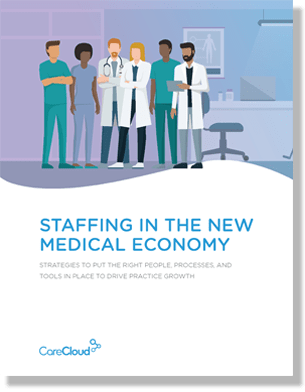Over the past decade, many medical industry experts have been espousing the development of a more transparent, consumer-driven healthcare system.
Advocates for healthcare consumerism seek a truly patient-centered medical environment, in which patients can make decisions about their treatment options, have easy access to their health data, get multiple insurance options to choose from and are given the power to research and choose their providers.
The healthcare industry may never become fully consumer-driven. In fact, the consumerism trend has plenty of detractors, who say that a patient-centered system assumes an overly high level of general patient interest in medical care.
But whether or not they’ve welcomed it, many say that the healthcare consumerism age is no longer a looming trend but a current reality.
“In the past couple of years, the view that providers should treat patients as if they are partners in their own care has advanced especially fast – at least when compared to the glacial pace of change that’s a hallmark of the healthcare industry,” writes Gienna Shaw, editor-in-chief of FierceHealthIT.
When you consider the many advances of recent years, it’s impossible not to see the growing footprint of consumerism in the daily operations of the modern medical practice. What’s truly remarkable is how many of these changes and improvements have resulted from technological progress, and how many more will be further advanced by technology.
Consumerism Today
With the wealth of medical information now available online, patients are more empowered than ever to research their symptoms and diagnoses to better understand their medical conditions. The means have expanded well beyond pharma-sponsored WebMD; the Mayo Clinic Symptom Checker is an incredibly useful and straightforward tool for obtaining general health information.
Also, HIPAA laws today authorize all patients to access to their medical records and amend misinformation within them. Thousands of errors have been caught and corrected by motivated, interested patients. The growing use of electronic health records (EHRs) has already made obtaining that personal data easier for consumers.
Sites like that of the Federation of State Medical Boards provide patients with the tools to learn more information about their providers. Some states’ sites even allow users to see any marks against a doctor’s reputation, making sure physicians are openly accountable for their errors.
And more payers than ever are providing coverage for alternative medical options, like acupuncture, opening up new treatment approaches for patients to request and physicians to turn to.
Consumerism Tomorrow
Further advances in healthcare consumerism will undoubtedly be moved forward by technology.
Providers are already embracing patient portals, which give patients direct, quick access to labwork or other test results. As developers advance the capabilities of existing technology, more and more portal systems will enable appointment requests, patient-to-staff messaging and bill payment options
As ePrescribing expands, it will become easier than ever for patients to fill their prescriptions without ever dropping off a slip of paper at the pharmacy. The AMA published an estimate that 20% of paper-based prescription orders go unfilled. ePrescribing enables patients to get their medications in an easier manner.
And the market for patient-operated technologies in healthcare is growing rapidly, as evidenced by the spate of healthcare apps and self-tracking devices showcased at recent trade shows like CES.
Hopefully, the data extracted by those monitoring tools will soon be incorporated into the patient health records of all who receive medical care. Some EHR technology already has the capability to compile that info; it will be up to doctors and their staffs to use it properly to enhance patient care.
The Patient-Centered Future is Here
Critics believe that healthcare consumerism puts too much power in the hands of patients who are not trained to make informed medical decisions. But what those detractors don’t readily accept is that the patient-centered shift doesn’t have to be an all-or-nothing move away from the “doctor knows best” mentality.
At its best, healthcare consumerism should endow patients with better tools for wellness, more access to information, and an improved focus on patient involvement, education and knowledge.
“The future is about empowering individuals,” says Ronald Bachman, president and CEO of Healthcare Visions. “It’s about supporting and rewarding healthy behaviors regardless of plan design. It’s about engaging employees, employers, medical providers, insurance carriers and other stakeholders in a new relationship that deals with health rather than sickness and disease.”
Technology has set the stage for that relationship. Today, by embracing it, your practice can help the best aspects of healthcare consumerism to develop, grow and expand.
What features of healthcare consumerism have you implemented in your practice?




